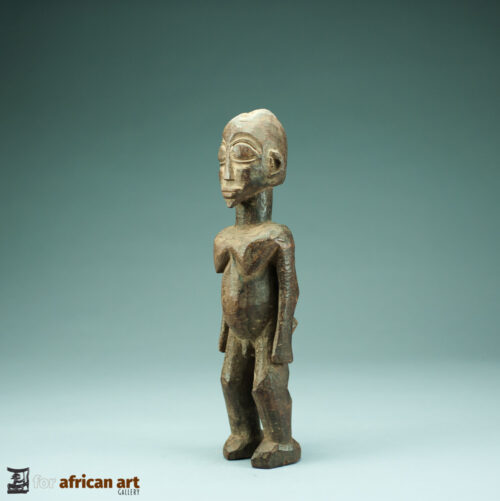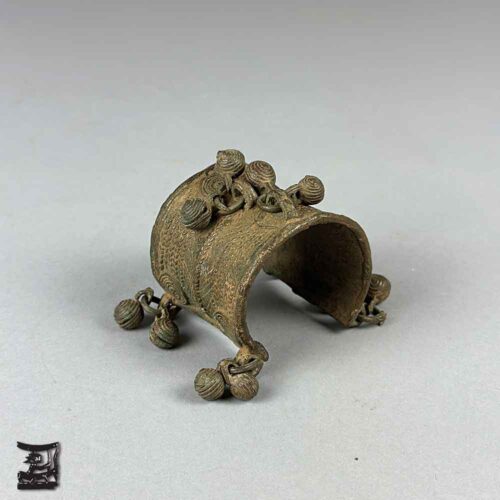Lobi People
Lobi People
Legacy of the Lobi People
The Lobi people, with roots tracing back to present-day Ghana, began a migration around the 18th century into what are now Burkina Faso and Côte d’Ivoire. Today, they are a vibrant collective of approximately 180,000 individuals, speaking the language known as Lobiri.
The Essence of Lobi Culture
Hailing from the lush forest regions, the term ‘Lobi’ is deeply rooted in their own lexicon – ‘lou’ (forest) and ‘bi’ (children), encapsulating their identity as the ‘children of the forest’. This connection to nature is not just a historical footnote; it is a lifeline that has shielded them from slave raiders and a spiritual conduit to their ancestors, as per their oral histories and myths.
Architectural Marvels and Community Structure
The Lobi settlement patterns reflect a strong sense of community and fortification. Their homes, standing like fortresses with towering walls and ladder-accessible flat roofs, are a testament to their historical need for protection and a unique visual culture. These structures, spaced about 100 meters apart, accommodate lineage-based communities and are a marvel of self-sufficient design with integrated farms.
The Artisan Economy of the Lobi
The Lobi’s agrarian lifestyle, rooted in the hoe farming of cereals and vegetables, and the rearing of livestock, is intricately tied to their artisan and craft traditions. They maintain a modest yet impactful production of gold, which historically found its way to Dyula merchants, signifying the blend of Lobi artistry and commerce.
Their industrious nature extends to the creation of iron implements, brass jewelry, musical instruments, wood carvings, and woven mats, reflecting a rich history of craftsmanship. These local productions become living expressions of the Lobi identity and culture.
In contemporary society, migration for better opportunities, both by the uneducated and educated, has shifted traditional labor dynamics and impacted the cultural landscape. Non-traders by tradition, the Lobi have historically been custodians through which major trade routes ran, marking their influence on regional trade flows without directly participating in them.
Engaging the African Art Collector
For collectors and connoisseurs of African art, the Lobi present a cultural tapestry woven with artistic significance. The striking architecture of their settlements, their sustainable farming practices, and the meticulous finesse of their artisanal works make the Lobi people a compelling study in resilience and artistic integrity.
Their artifacts, whether tools, ornaments, or musical instruments, are not merely utilitarian items but are imbued with the spirit and history of a people deeply connected to their environment. Each piece is a narrative, a tangible slice of Lobi culture ready to be integrated into the global appreciation of African art and heritage.
In seeking out Lobi artistry, collectors become part of a legacy that bridges ancient traditions with contemporary relevance, ensuring that these ‘children of the forest’ continue to inspire and influence through their enduring creations.
Get updates about our new items, news and information.
We will process the personal data you have supplied in accordance with our privacy policy.






